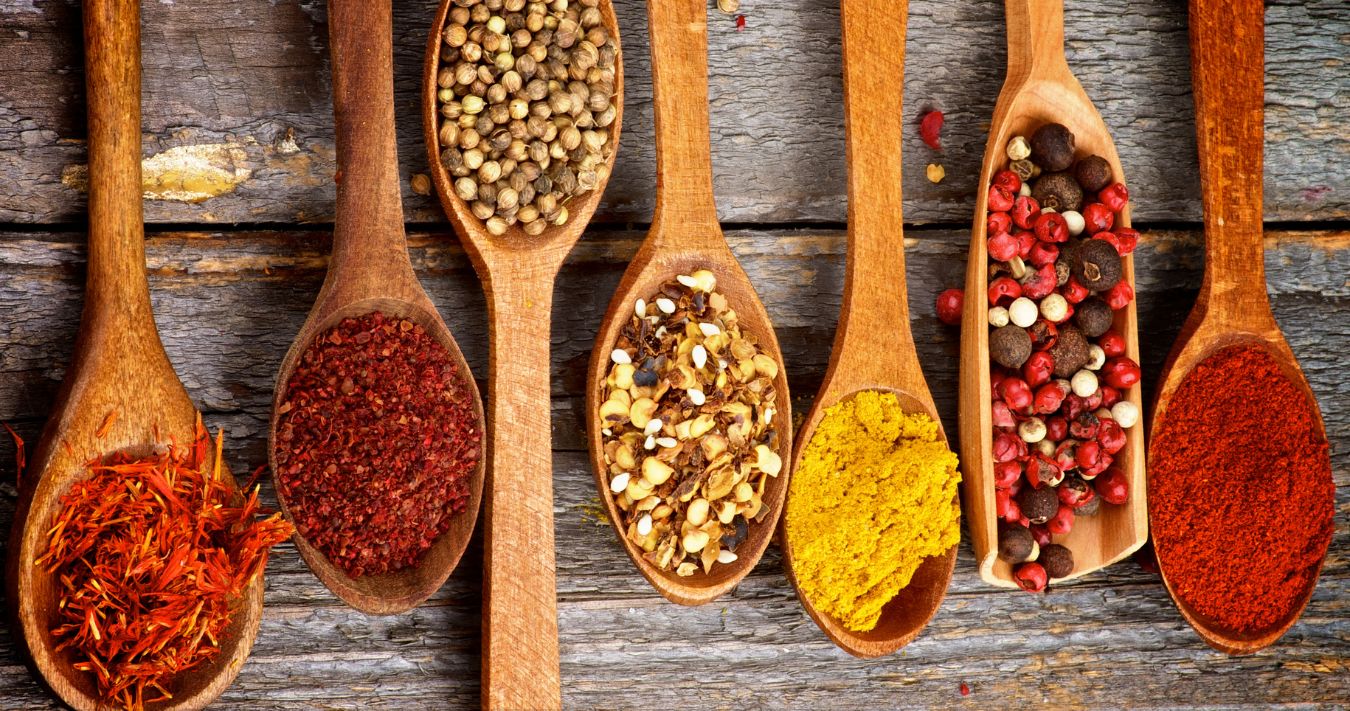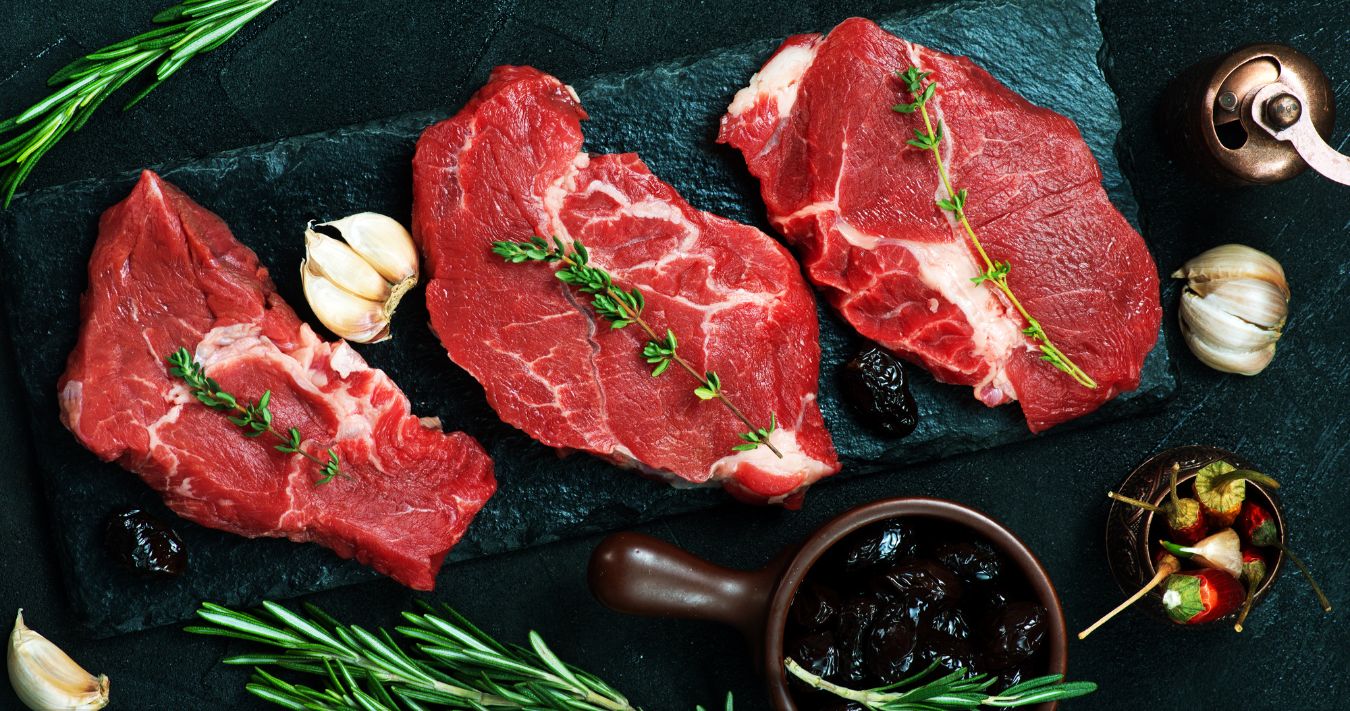Avoid These Foods to Manage a Healthy IBS Diet
Irritable bowel syndrome (IBS) can impact many aspects of your life and feel uncomfortable. Managing your diet is key. Eating the worst foods for IBS can cause you to experience stomach pain and other negative side effects, so they should be avoided.
6 Foods to Cut From Your Diet
1. Spicy Foods
Spicy foods can be a major irritant for individuals living with IBS. While flavorful, spicy foods can activate IBS symptoms. According to Medical News Today, hot or spicy foods may cause IBS flare-ups — though the link between the two has not been fully researched yet.
If you have been keeping a food diary and notice you experience more IBS symptoms after you eat spicy foods, this may be one you need to avoid. On the other hand, if you are just beginning your IBS journey and are seeing what works for you and what doesn’t, here are some hot dishes you might want to eliminate so you can pinpoint which foods you should remove from your diet:
- Curries.
- Hot sauces.
- Spicy peppers.
2. Artificial Sweeteners
While maintaining a healthy diet, it’s best to limit your overall sugar intake. However, if you suffer from IBS, substituting sugar for artificial sweeteners can cause you to experience the negative side effects of this condition.
According to Healthline, consuming sugar alcohols like sorbitol can be especially difficult for individuals with IBS to ingest. That’s because these substitutes are challenging for the body to absorb.
If you are concerned about eating foods that contain artificial sweeteners, you should make sure to thoroughly read food labels for items before you purchase them at the grocery store. This will help you have a better understanding if a food contains an artificial sweetener you’re trying to avoid.
3. Dairy
If you are lactose intolerant, consuming dairy products can cause you to experience painful intestinal issues after your meal — and if you have IBS, these problems might be amplified.
John Hopkins Medicine cites dairy as one of the worst foods for IBS that some people with the condition should avoid. If you know that consuming dairy negatively impacts how you feel after eating it, consider avoiding dishes that include large quantities of:
- Milk.
- Butter.
- Cream.
- Cheese.
4. Fried Foods
You may want to avoid fried foods if you suffer from IBS. In general, this is not one of the healthiest types of food you can eat, so it’s best to limit how much fried food you eat whether you are concerned about your gut health or overall wellness.
However, if you struggle with IBS, limiting your fried food intake can be especially helpful. The Alabama Colon & Rectal Institute explains that fried foods can be difficult for individuals with IBS to eat because these items are not easily digestible once you consume them.
Some popular fried foods you might want to avoid include:
- Doughnuts.
- French fries.
- Potato chips.
- Fried chicken.
5. Highly Processed Foods
Similar to fried foods, it’s best to limit the amount of highly processed foods you eat on a regular basis if you want to maintain a healthy diet. If you are concerned about managing your IBS symptoms, capping the amount of highly processed or prepackaged foods you eat each day may help.
Healthline indicates that one of the reasons why these foods might be an IBS trigger is because they typically contain various ingredients you would not add to your dish if you were preparing it yourself. In particular, processed foods high in the following ingredients may cause you to experience IBS symptoms:
- Fat.
- Salt.
- Sugar.
Instead of eating processed foods, try and make a homemade version of the dish you want to buy. There’s a good chance it will be healthier than the pre-made dish.
6. Carbonated Drinks
According to Epicured, carbonated drinks can be irritants for people managing IBS. As their name suggests, these beverages are high in carbon dioxide, which makes them fizzy and bubbly.
If you suffer from IBS, this extra gas could irritate your gastrointestinal tract.
Some carbonated drinks you may want to avoid include:
- Soda.
- Alcohol.
- Sparkling water.
Gut Saboteurs
Dealing with irritable bowel syndrome (IBS) is a painful condition many individuals around the world suffer from.
IBS is a very personalized condition, and some of the items you can eat may not have the same impact on other individuals who are managing their relationship with IBS.
The following information is intended for informational purposes only. Everyone’s body is different, and I am not a medical professional. The content in this article is not a substitute for medical advice, and you should seek advice from a healthcare professional before changing your diet.
If you want to avoid having blood clots, consider these diet options.

